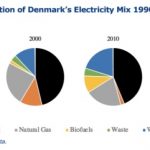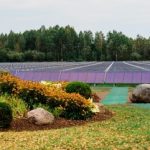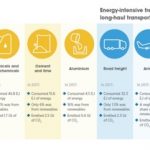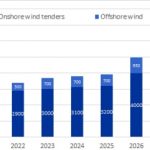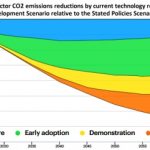The switches and converters needed to plug new clean energy technologies into the grid are going to be needed soon. The cheaper and smaller they are, the easier it will be to cope with the wide range of solutions coming down the pipe. NREL and its partners are building a megawatt-scale prototype converter that could fit the bill. They will be 1/5th the size and 1/10th the weight of existing alternatives: small enough to place almost anywhere. … [Read more...]
Engineering yeast to create Biofuels from non-food crops (straw, grass, cellulosic waste)
Using ethanol can reduce the global consumption of fossil fuels. But, commercially, ethanol in the U.S. is produced from corn and not enough is grown to make a significant impact on U.S. fuel needs. Anne Trafton at MIT describes research that has engineered yeast to break down straw and woody plant material to create ethanol as efficiently as it’s done from corn. High yields of ethanol were extracted from five different types of cellulosic … [Read more...]
Germany: will the end of feed-in tariffs mean the end of citizens-as-energy-producers
Germany’s feed-in tariffs ran for 20 years. The guaranteed electricity price and connection to the grid incentivised ordinary citizens and communities to invest in smaller scale solar, biomass and wind generation for their homes and local areas. But that guaranteed price is now too expensive, and so the tariffs are ending and lowest-bid auctions are taking over. It’s the bigger players who are winning those auctions, and some of the existing … [Read more...]
Fit for 55: Does squeeze on gas make coal exit harder? Event summary + video
On May 18, 2021, Energy Post hosted an expert panel with the European Commission, E3G, CERRE and PKEE (the Polish Electricity Association, who also sponsored the discussion). It looked at some of the key EU support mechanisms offered to countries/companies transitioning away from coal, including the EU ETS' Modernisation Fund, the Just Transition Fund and also how State Aid Guidelines (EEAG) contribute. We asked Stefaan Vergote (Senior Advisor … [Read more...]
18 energy transition scenarios to watch: where they agree and disagree
A wide range of regions, nations and respected organisations have created net-zero strategies and pathways, but on what do they agree and disagree? Dolf Gielen, Asami Miketa, Ricardo Gorini and Pablo Carvajal at IRENA have done a meta-analysis of 18 recent energy transition scenarios to find out. There is consensus over the main strategies: renewable power generation, and the direct and indirect electrification of end-use sectors – these account … [Read more...]
Sustainably harvested Forest Biomass can help replace coal and gas
Burning sustainably harvested wood pellets emits far less carbon than burning coal or gas. That’s the main reason why it should be used in the global energy transition, argues Jennifer Jenkins at Enviva. Coal is declining, but not fast enough. Gas consumption is rising. Forest biomass can more easily be swapped in than wind and solar to provide dispatchable power. But it must be done sustainably. Referencing her white paper, Jenkins sets out the … [Read more...]
What is making Denmark a decarbonisation success? Policy, society, geography
Denmark is proving itself to be a decarbonisation leader, happy to turn its back on its history of oil and gas production and heavy reliance on coal. Its ambitious goal of cutting GHG emissions by 70% by 2030 makes it a global policy frontrunner, second only to Finland which aims to be climate neutral by 2035. Thibault Menu references his report for IFRI that asks what makes Denmark special. It has a long tradition of providing stability and … [Read more...]
China: decoupling GDP growth from rising emissions
To set up this week’s important online event (Tuesday 13th & Wednesday 14th April) “China: Carbon Neutral by 2060 -EFFICIENCY FIRST” we have an overview of China’s energy transition. Everyone agrees its performance is critical for the world to achieve the global goal of limiting warming to 1.5C by 2050. China made significant progress in 2020 with policy frameworks, renewable capacity additions and EVs, but it also added 38 GW of new … [Read more...]
EU Recovery funds: where is the support for District Heating?
District Heating is an efficient way to heat homes, particularly in a country like Latvia where 58% of its primary energy consumption is used for heating. But Selīna Vancāne at Riga City Council is very concerned that the draft EU Recovery plans do not include any support under the climate goals for district heating projects. Perhaps it’s because of a blind spot: most of Europe is prioritising individual heating units powered by electricity. … [Read more...]
A people-powered energy system: activating the community energy market for bioenergy
Among others, lack of preparedness for communities to tap the full bioenergy market potential[1], lack of bioenergy stakeholders’ awareness of the potential of communities and missing/ unsupportive (local, regional and national) framework and policy conditions. For a people-powered energy system, the Horizon 2020-funded project BECoop (2020-2023) aims at putting communities in charge of their local renewable (bio)energy generation. … [Read more...]
Decarbonising end-use sectors: buildings, transport, industry. Which strategies are best?
The rapid pace of change in the energy sector is a positive sign for the transition. But the disruption it causes creates another big problem. It makes it harder to predict what will happen next. That makes strategies and pathways harder to design, and increases the risk of stranded assets. To try to come to grips with that future, Sean Ratka, Paul Durrant and Francisco Boshell summarise the findings of IRENA's 4-day “Innovation Week” held last … [Read more...]
Will Germany’s “EEG” energy law amendments make renewable targets harder to meet?
Germany’s Renewable Energy Sources Act (Erneuerbare-Energien-Gesetz/EEG), now 20 years old, is under discussion as a new amendment is supposed to come into force on January 1st 2021. Simon Göss at Energy Brainpool takes a detailed look at the highlights, including the new and higher targets, the financial role of municipalities, clean electricity subsidies, and solar and wind tender volumes. He explains there has been serious criticism of the … [Read more...]
City-level emissions reductions: what can successful cities teach us
The EU Covenant of Mayors for Climate and Energy (EUCoM) requires their member cities to commit to exceeding their national goals. EUCoM is one of the world’s largest subnational climate action networks, with over 1,000 cities and home to 50m people. Writing for Carbon Brief, Angel Hsu, Nihit Goyal and Amy Weinfurter at Yale-NUS College review the data to see how successful they have been. About 40% of the cities show emission reductions that are … [Read more...]
IEA: Without accelerating clean energy innovations we cannot hit net zero by 2050
The impressive rise of renewables and energy efficiency, alone, will not be sufficient to meet the world’s 2050 emissions goal, says the IEA in its flagship Clean Energy Innovation report. New technologies, taken all the way through to widespread adoption by the market, must become an essential part of the net zero pathway. The stark warning is that existing policies to decarbonise shipping, trucks, aviation and heavy industry are not nearly … [Read more...]
Waste Heat Recovery can help replace Poland’s District Heating coal
Three quarters of all district heating in Poland comes from burning coal. So the country is looking for ways to reduce this. It’s why subsidies are provided for combined heat and power (CHP) plants that burn either coal, gas or biomass, which all have lower emissions. But a report by IEEFA authored by Gerard Wynn, Arjun Flora and Paolo Coghe says that waste heat recovery (WHR) – currently unsubsidised – is both emissions free and can be … [Read more...]
- « Previous Page
- 1
- 2
- 3
- 4
- …
- 6
- Next Page »








